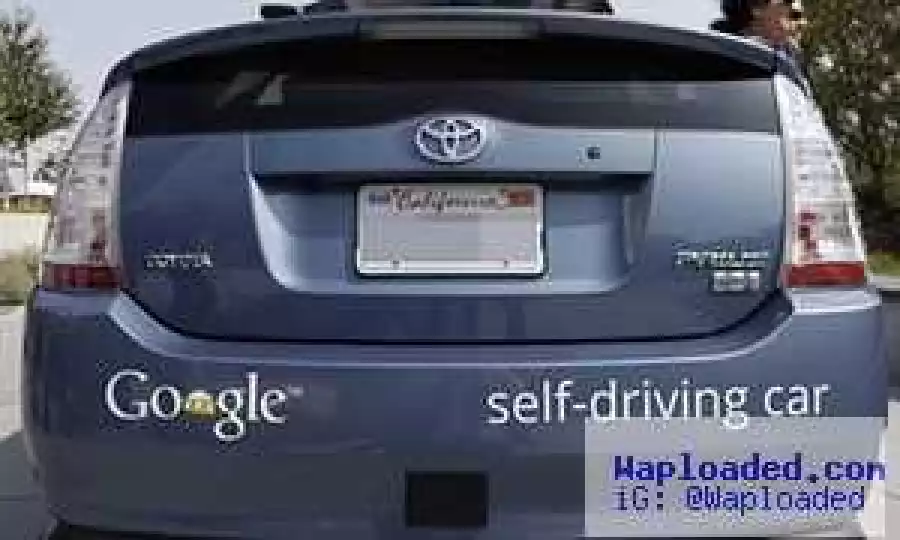US Sets To Legalize First Driverless Cars

US Sets To Legalize First Driverless Cars
The bill, AB1592, would permit autonomous vehicles ‘not equipped with a steering wheel, a brake pedal, an accelerator, or an operator inside the vehicle’
A California lawmaker has introduced a bill that would legalise autonomous vehicles without human drivers for the first time in the US.
Assembly woman Susan Bonilla wants to change California’s rules so that GoMentum Station, a testing ground for autonomous vehicles located in her district near San Francisco, can test completely driverless vehicles on public roads.
The bill, AB1592, would permit self-driving cars “not equipped with a steering wheel, a brake pedal, an accelerator, or an operator inside the vehicle”. However, only GoMentum Station would be allowed to conduct the pilot tests, and the trials would be limited to a specific business park and top speeds of 35mph.
California law currently requires all autonomous vehicles on public roads to have a human safety driver and manual backup controls.
GoMentum Station wants the rule change so that it can publicly test two driverless EZ10 shuttle buses made by French company EasyMile. The EZ10 has already been deployed in Switzerland, Italy, Spain, Finland and France, where it has operated as “last mile” transport on campuses or to reach transport hubs.
Like Google’s prototype “Koala” self-driving car, the EZ10 travels at up to 25mph, uses cameras, lasers and GPS to navigate and avoid obstacles, and requires specialised, highly detailed maps of an area in order to function. But unlike Google’s two-seater cars, each EZ10 can transport six people seated and another four standing, and generally follows a pre-programmed route.
EasyMile would now like to test the EZ10 in the US. In October 2015, it signed an exclusive testing agreement with GoMentum Station. Shuttles are expected to arrive at the disused second world war-era military facility this summer, where they will be tested on 20 miles of private highways and city streets.
Last year, engineers at Apple approached GoMentum Station about testing self-driving technologies there, and Honda has also used the base to trial prototype sensors and cameras on semi-automated vehicles.
Based 30 miles east of San Francisco in the city of Concord, GoMentum Station plans to deploy EZ10 buses on a pilot project at the massive Bishop Ranch business parkeast of San Francisco, where they would move workers around the 585-acre site.
“Bishop Ranch is an innovative owner that’s looking into the future and asking if self-driving technology is going to reduce or eliminate the need for parking structures,” says Randy Iwasaki, executive director of Contra Costa
Transportation Authority, the public agency that runs GoMentum Station.
“Technology is moving forward so fast, sometimes it’s hard for regulators to provide the necessary regulations. We’re trying to create an opportunity here.”
Some carmakers, including Tesla, are building vehicles with increasingly sophisticated driver assistance systems. The other approach, favoured by Google, jumps over this so-called “mushy middle” of automation to truly driverless vehicles. “The key for these driverless vehicles is location, location, location,” says Bryant Walker Smith, a law professor at the University of South Carolina. “At least initially, they will operate only at slow speeds in simple environments in specific communities. This bill reflects one community’s desire to be an early showcase.”
The bill would also give GoMentum a monopoly on testing fully driverless vehicles on California’s roads. That is likely to annoy Google, which would like to operate its prototype self-driving cars without the awkward manual controls it has had to retrofit to meet California’s rules.
Chris Urmson, director of Google’s self-driving program, calls the existing regulations forbidding fully driverless test vehicles “perplexing”. He says, “This maintains the same old status quo and falls short on allowing this technology to reach its full potential.” Google has demonstrated its vehicles working on private property without safety drivers.
If all goes well, AB1592 could become law as soon as this summer. However, it might face opposition from officials at the California department of motor vehicles (DMV). Last month, the DMV finally issued draft regulations for the public operation of self-driving vehicles that specifically forbid fully driverless vehicles, as well as buses, trucks and shuttles like the EZ10.
“Consistent with the testing regulations, commercial vehicles are excluded from deployment,” says the agency. “Due to the size of these vehicles, DMV believes that public safety is best served by initially limiting deployment to passenger vehicles.”
If the bill fails, the danger for California is that manufacturers will direct their autonomous vehicles elsewhere. Texas and Florida are both courting carmakers with less restrictive regulations than those in California (although currently both require a human driver on board). “We need to make sure that our companies that are at the forefront of the autonomous vehicle innovation are able to get their testing done here in California,” said Bonilla.







![Dirty Ice Cream (2024) [Filipino]](https://www.memesng.com/r/storage.waploaded.com/images/d931a80987882041541ad5d0f4b4ef00.jpg?w=50&ulb=true&ssl=1)

![Adim (2024) [Bengali]](https://www.memesng.com/r/storage.waploaded.com/images/9ec8e95670d0fe60cec29b93da71b64c.jpg?w=50&ulb=true&ssl=1)
![Nobody Belongs To Nobody (2023) [Portuguese]](https://www.memesng.com/r/storage.waploaded.com/images/b3e81a38082024d5c2efcc1ef7c1c54f.jpg?w=50&ulb=true&ssl=1)
















{{comment.anon_name ?? comment.full_name}}
{{timeAgo(comment.date_added)}}
{{comment.body}}
{{subComment.anon_name ?? subComment.full_name}}
{{timeAgo(subComment.date_added)}}
{{subComment.body}}